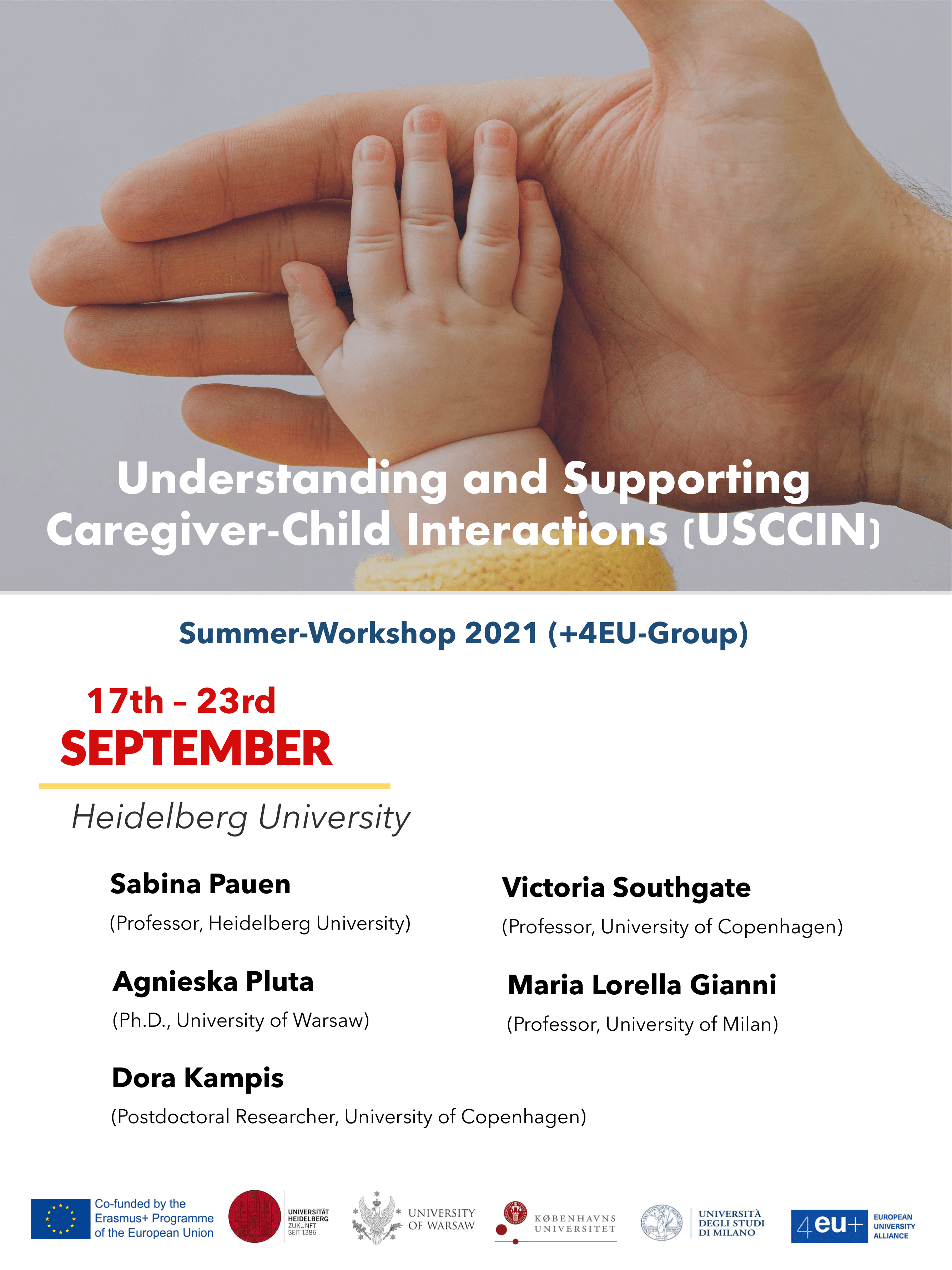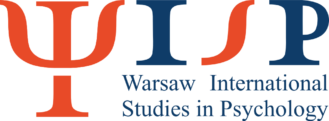Summer workshops “Understanding and Supporting Caregiver-Child Interactions”

We invite students, PhD students and post docs to participate in free summer workshops “Understanding and Supporting Caregiver-Child Interactions” organized by the 4EU + Alliance.
The workshop will be held on September 17-23, 2021 at the University of Heidelberg (Germany).
Applications can be submitted until August 15, 2021 to the address apluta@psych.uw.edu.pl
Details below.
———
The idea of the workshop
Since 2019, experts from different disciplines (medicine, psychology, cognitive neuroscience) and from different European sites (Warsaw, Milan, Copenhagen, Heidelberg) jointly investigate caregiver-child interactions in typical and atypical caregiver-child dyads. In addition, we already offered the first international seminar for students from all four sites last spring term. Now we would like to share our methodological and theoretical knowledge with even more students, meeting in person (if possible), providing stimulating theoretical discussions, practical insights into new research techniques (e.g. fMRI, EEG, fNIRS, video-microanalysis), and jointly thinking about how to promote international teaching. For BA- and MA- students who successfully apply, the EU will fund any costs for travelling and accommodation.
Tentative schedule
Day 1 (Friday)
- Students will get to know each other and exchange experiences
- Joint Dinner
Day 2 (Saturday)
- Presentations of Group leaders and their teams (Warsaw, Milan)
- Discussion about new research articles on caregiver-child interactions, considering different disciplinary perspectives.
- Discussion about potential new research projects(e.g. BA /MA /PhD theses)
Days 3 (Sunday)
- Presentation of Group leaders and their teams (Copenhagen, Heidelberg)
- Discussion of new research articles on caregiver-child interactions, considering different disciplinary perspectives.
- Discussion about potential new research projects(e.g. BA /MA /PhD theses)
Day 4 (Monday)
- Introduction to SECORE and INTERACT
- First experience with applying the coding systemin tandems
- Reflecting on potential difficulties related to cross-cultural comparisons of corresponding data, thus actively adapting the coding scheme to become a culture-fair
Day 5 (Tuesday)
- Tour of the new “Interaction Lab” at Heidelberg University
- Introduction to various techniques for assessing interactive quality at the biological, physiological, neurophysiological and behavioral
- Practicing the SECORE coding with INTERACT
Day 6 (Wednesday)
- Group work: Developing a teaching concept for a seminar on “Understanding and supporting caregiver-child interactions” at the BA-level. This course will be held in spring 2022, and those students who want to gain teaching experience will be invited to serve as peer-teachers in this
- Dinner together
Day 7 (Thursday)
- Departure
Who is eligible to apply for funded participation?
BA- and MA-students, as well as PhD students or Postdocs with a high interest in learning about how to investigate caregiver-child interactions – preferably if they are interested in writing a thesis with one or more members of the project group as supervisors.
How can you apply?
Contact dr Agnieszka Pluta apluta@psych.uw.edu.pl
Please provide:
- Your CV and Transcript of Records
- A motivational letter explaining why you want to participate
- A statement regarding your COVID-19 protection (vaccination)
Please turn in your application until August 15th (latest!!!)
What happens in case of a new lockdown?
The workshop plan will be adjusted and we will provide you with a stimulating online- course.
What makes it worth attending?
- You will gain theoretical and practical expertise on caregiver-child interactions and how to investigate
- You become part of a team that promotes collaboration within the EU
- You have multiple international experts to discuss new research ideas with (for your thesis or just for fun)
- You practice your
- You may make new
- You will get the chance to promote international teaching by helping develop the next student course for spring
- You get a certificate for your participation which you can add to your

